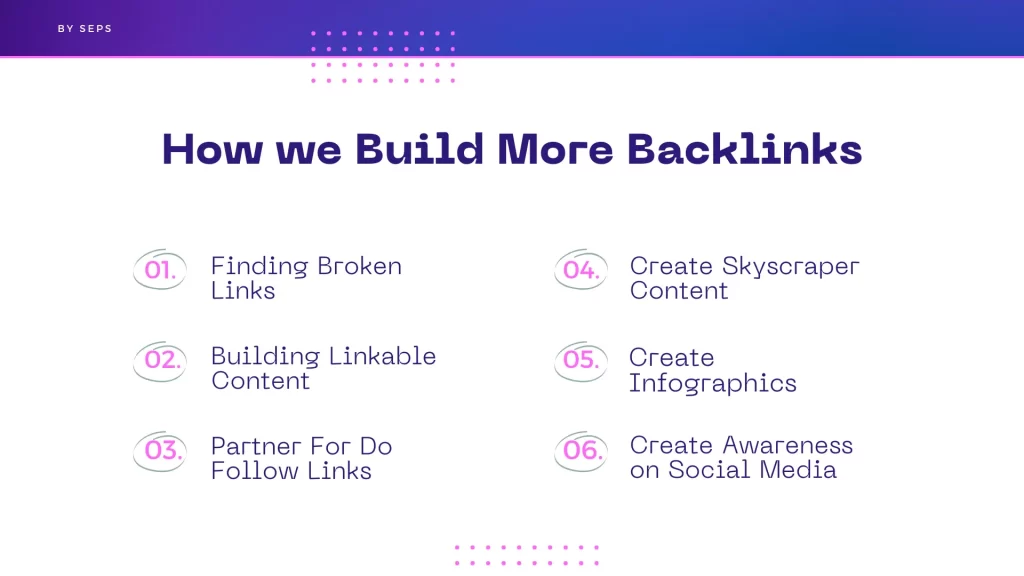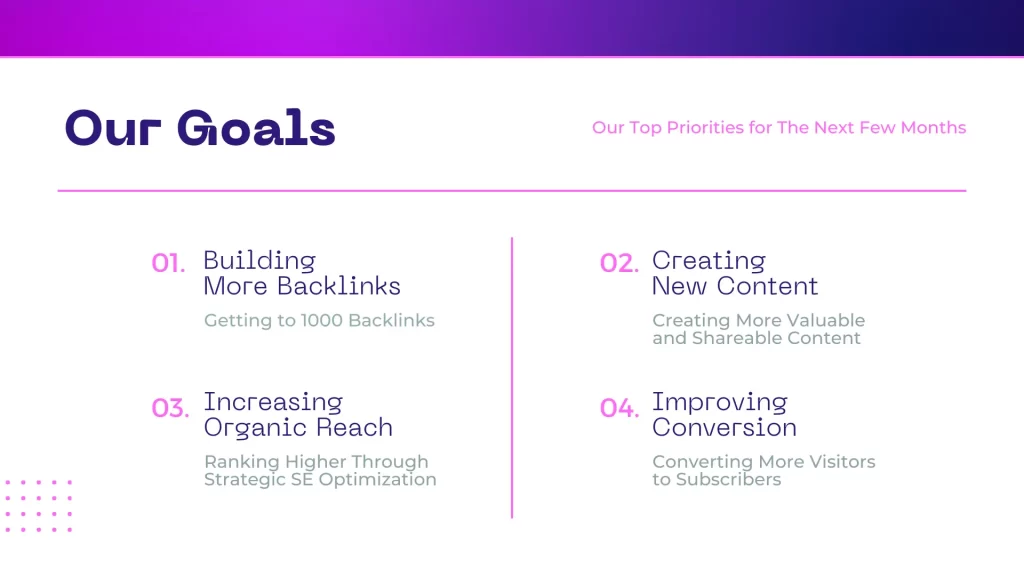Search Engine Optimisation Link Building
Search Engine Optimisation Link Building is a crucial strategy for enhancing your website’s visibility and authority. By acquiring high-quality backlinks from reputable sources, you can significantly improve your search engine rankings. Link building not only helps in driving organic traffic but also establishes your site as a trusted and credible source of information. When done correctly, it can lead to higher domain authority, better keyword rankings, and increased online exposure, all of which contribute to your overall digital marketing success.
Implementing an effective Search Engine Optimisation Link Building strategy involves identifying relevant websites, creating valuable content, and fostering relationships with other webmasters. This process requires a blend of creativity and technical expertise to ensure that your links are both natural and beneficial. As search engines evolve, so do the tactics and best practices for link building. Staying updated with the latest trends and algorithm changes is essential to maintain a competitive edge. Ultimately, a well-executed link-building strategy can lead to long-term growth and sustainability for your online presence.
Introduction to Search Engine Optimisation Link Building
In the realm of digital marketing, the term “Search Engine Optimization Link Building” holds significant weight. This comprehensive guide aims to delve into the depths of this crucial aspect of SEO, uncovering its nuances, strategies, and future trends.
Understanding Search Engine Optimization Link Building

The Importance of Link Building in SEO
Link building is the backbone of a robust SEO strategy. It plays a pivotal role in determining a website’s ranking on search engine results pages (SERPs). When reputable sites link to yours, search engines perceive your content as valuable and trustworthy, thus elevating your position in search rankings. Search Engine Optimization Link Building is essential for enhancing visibility, driving organic traffic, and establishing domain authority.
Types of Links in SEO
There are various types of links that contribute to SEO efforts:
4.1. Natural Links: These links are editorially given without any action on the part of a page owner. They often stem from quality content and are highly valued by search engines.
4.2. Editorial Links: Also known as organic or earned links, these are links that website owners deliberately place within the content because they find the linked content valuable to their audience.
4.3. Manual Links: These are links acquired through deliberate efforts such as outreach campaigns, guest blogging, or influencer collaborations.
4.4. Self-Created Links: Links that are created by website owners through methods like forum signatures, blog comments, or directory submissions. While these may have been popular in the past, search engines now prioritize natural and editorial links over self-created ones.
Strategies for Effective Link Building
Successful link building requires a strategic approach. Here are some proven strategies:
5.1. Content Marketing for Link Building: Creating high-quality, engaging content that naturally attracts backlinks is a cornerstone of effective link building. By consistently producing valuable content, you increase the likelihood of earning natural links from authoritative sources.
5.2. Guest Blogging and Outreach: Collaborating with other websites through guest blogging allows you to showcase your expertise to a new audience while also earning valuable backlinks. Outreach strategies involve reaching out to relevant websites and proposing mutually beneficial partnerships for link placement.
5.3. Broken Link Building: This strategy involves finding broken links on other websites and offering your own content as a replacement. It’s a win-win situation as you help website owners fix broken links while gaining a valuable backlink in return.
5.4. Social Media Engagement: While not a direct link building tactic, active engagement on social media platforms can amplify your content’s visibility, leading to more opportunities for natural link acquisition.
5.5. Influencer Collaboration: Partnering with influencers in your niche can expose your content to a wider audience and attract valuable backlinks from their followers and networks.

Tools for Link Building
Several tools can streamline the link building process, including Ahrefs, Moz Link Explorer, SEMrush, BuzzStream, and Pitchbox. These tools offer insights into backlink profiles, competitor analysis, outreach management, and more, facilitating effective link building campaigns.
Measuring and Analyzing Link Building Efforts
To gauge the success of your link building endeavors, it’s essential to track key metrics such as the number of backlinks acquired, referring domains, anchor text distribution, and organic traffic growth. Tools like Google Analytics and Google Search Console provide valuable data for monitoring and analyzing link building performance.
Common Mistakes to Avoid in Link Building
- Keyword stuffing: Overusing target keywords in anchor text can raise red flags for search engines.
- Ignoring relevancy: Acquiring links from irrelevant or low-quality websites can harm your SEO efforts.
- Neglecting diversity: Diversifying anchor text and link sources is crucial for maintaining a natural link profile.
- Neglecting internal linking: Internal links help distribute link equity throughout your website and improve site navigation.
Future Trends in Link Building
As search engines continue to evolve, so do link building strategies. The future of Search Engine Optimization Link Building is likely to be shaped by factors such as user experience, semantic search, and artificial intelligence. Embracing emerging trends like voice search optimization, video content, and featured snippets will be key to staying ahead in the ever-changing landscape of SEO.
Search Engine Optimization Link Building remains a fundamental aspect of SEO strategy. By understanding its significance, employing effective strategies, leveraging the right tools, and adapting to future trends, website owners can enhance their online visibility, drive organic traffic, and establish authority in their respective niches. As the digital landscape continues to evolve, staying informed and agile in link building practices will be essential for sustainable online success.
